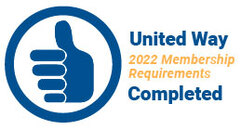|
School counselors from White County discussed their experiences with students related to substance abuse. They share their perspectives in the remainder of the article below, with quotations reflecting their individual insights.
School counselors see two problems: students who are affected by a family member involved in substance abuse and student usage. Both impact our schools. They see the effects of a family member’s addiction on students. The emotional and social effects on students are far-reaching and influence their academic success. “When family members are involved in addiction, it is difficult for students to be successful without support from home. Parents who use are setting their kids up to follow them down that path.” “I feel sad for kids who have parents who are using. They lack the kind of support system that makes other kids successful. Parents can be very good about hiding their issues. They simply don’t come around to school.” Counselors wonder how to help students whose families are struggling with substance abuse, overdose and incarceration. They also see students begin their own journey into addiction. They know of former students who have destroyed their lives with substance abuse. “I want students to succeed and graduate. Students who I suspect may be using drugs show higher attendance issues and academic struggles.” The counselors expressed concerns about the young age when kids begin using drugs. They emphasize the importance of prevention and keeping kids from becoming involved with drugs. “In the long run, it is so much easier to prevent someone from getting involved with drugs than to deal with the consequences of a destroyed life.” Others mentioned the difficulty in getting adolescents to understand the dangers and take them seriously. “They think they are invincible and [addiction] won’t happen to them.” Many expressed frustration and fear. “Honestly, sometimes I feel defeated and discouraged. I see how debilitating this epidemic has become and it is sad how poorly our society treats aspects of this problem. I am fearful for my own children growing up during this epidemic because of how accessible these drugs have become.” “It makes me very sad and sick to my stomach. There is an attitude that if someone overdoses then it’s on them and we shouldn’t be spending money to save the life of someone who is just going to get high again.” “Actually, I think it goes back to viewing addiction as a community health issue rather than a crime. The stigma surrounding addiction and lack of resources are keeping us from making the progress that we want.” “Our community needs to understand and buy-in to [addressing this issue by] making resources available to help those who are struggling. We need local services and treatment.” “We need more awareness, education, and access to counseling and services. We need to let people get help without getting in trouble with the law.” All the counselors indicated a commitment to developing a community where children were safe and protected, where families receive the support they need to eliminate the generational cycles of addiction, and where the community works together to solve problems. Their goal is to provide the support to students and families to make this happen. If someone you know is struggling with substance use, please encourage them to talk to a guidance counselor at their school. Adults over age 18 can call 765-490-0381 to talk to a live person about getting help. There is hope!
0 Comments
Your comment will be posted after it is approved.
Leave a Reply. |
AuthorLynn Saylor is the AmeriCorps member working with the United Against Opioid Abuse Initiative alongside the White County United Way. She is a major facilitator of the United Council on Opioids serving White County and a regular contributor to local media. Archives
October 2020
Categories
All
|

 RSS Feed
RSS Feed
